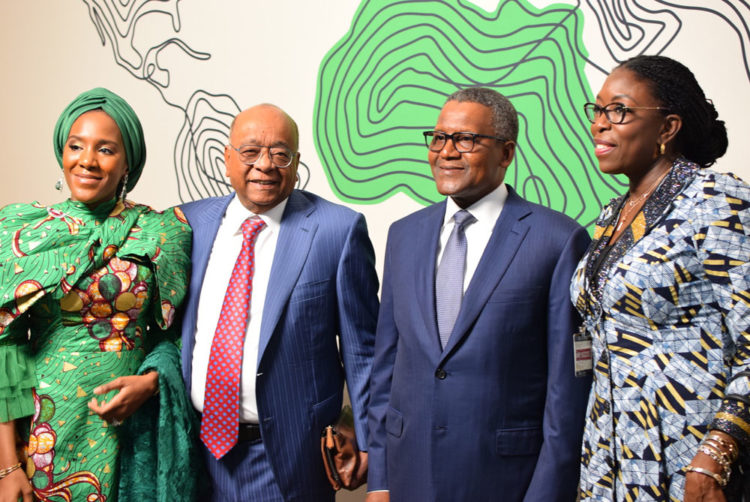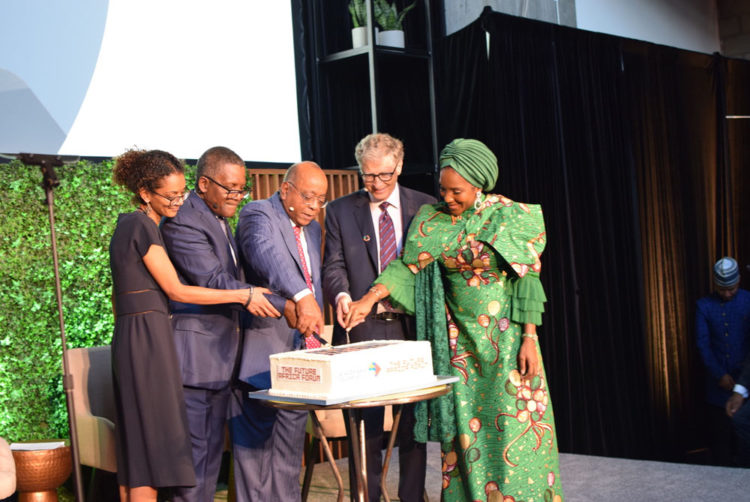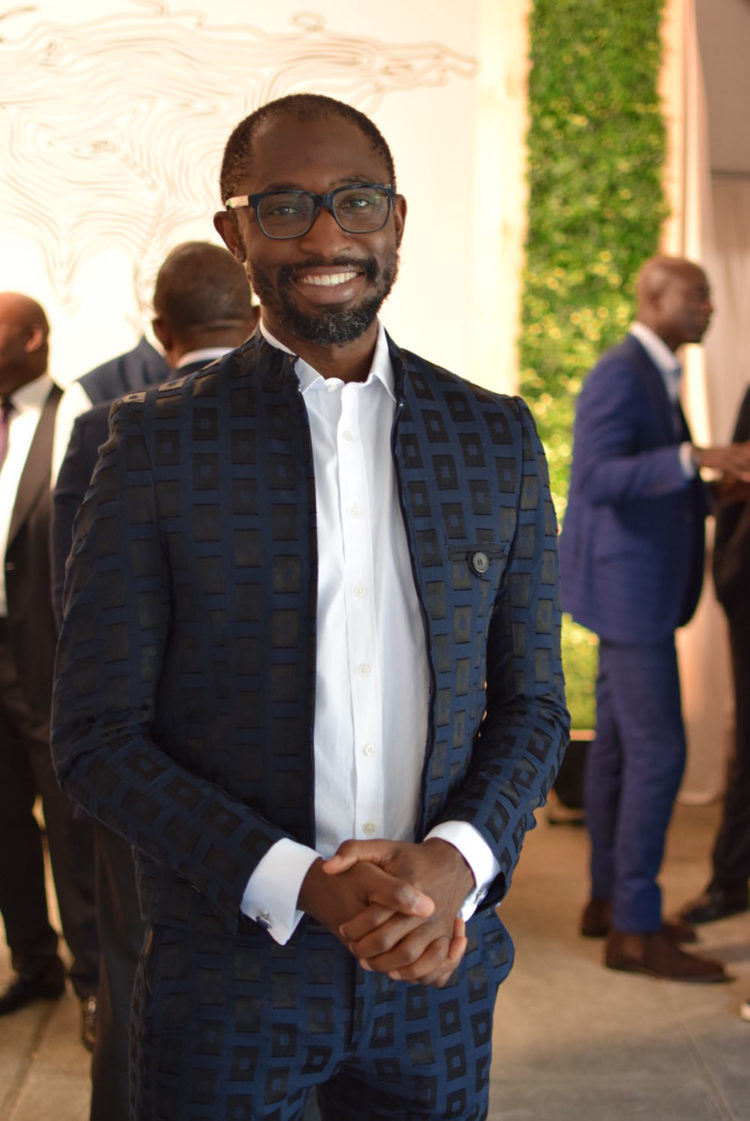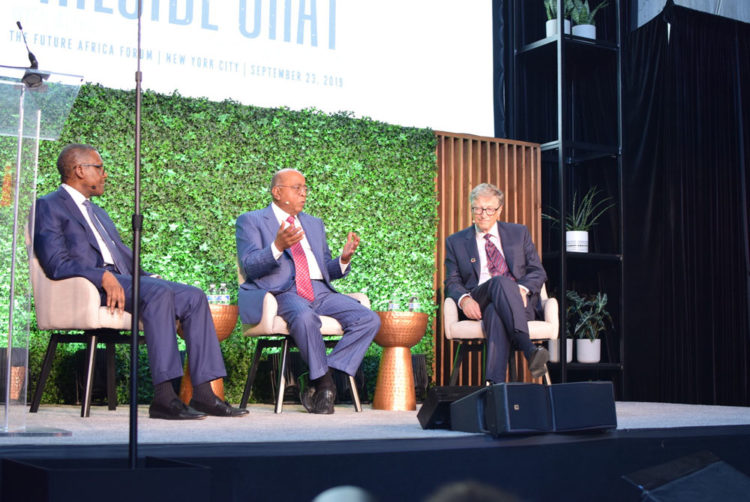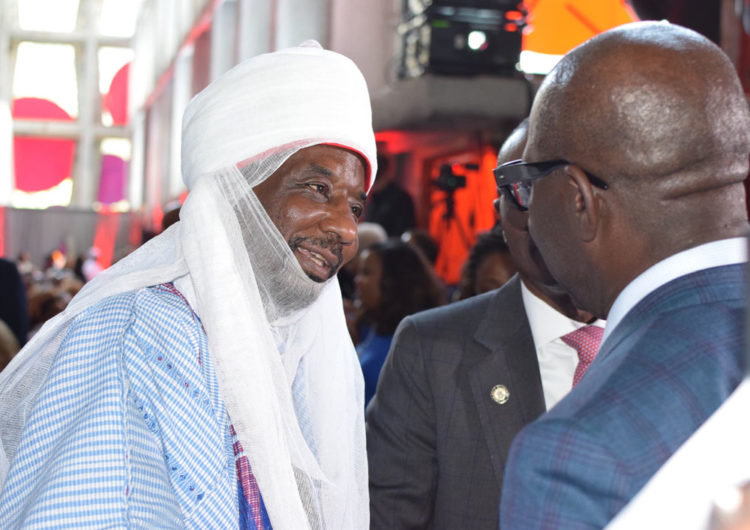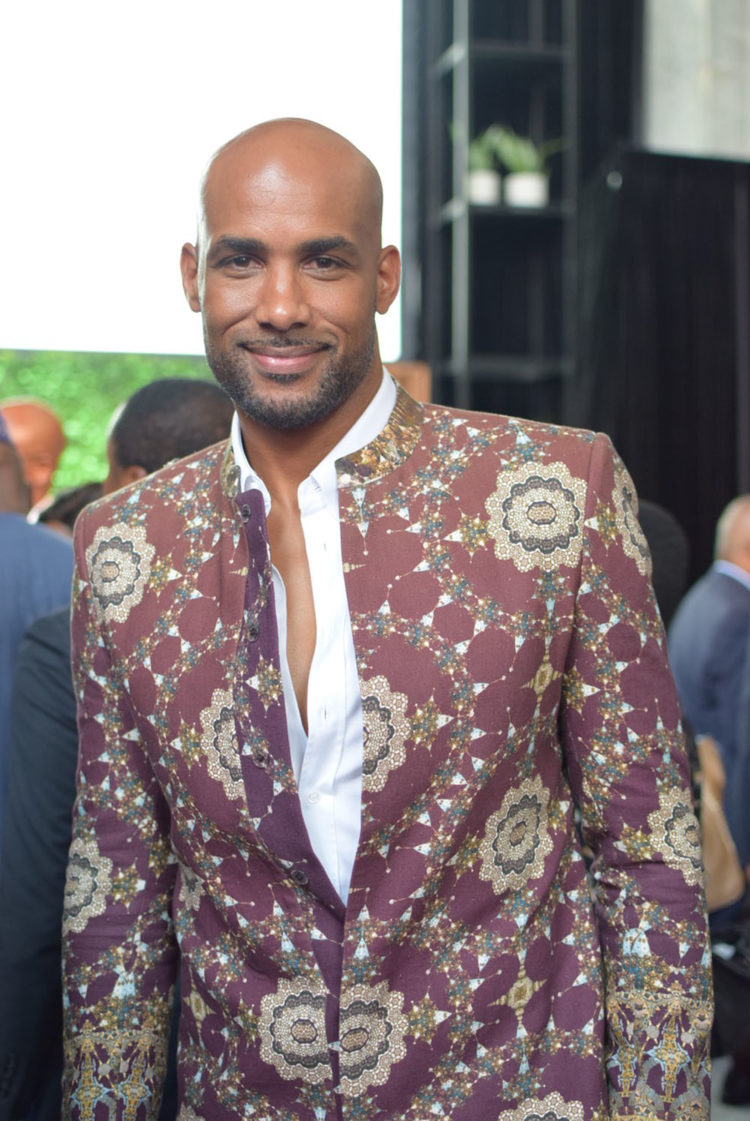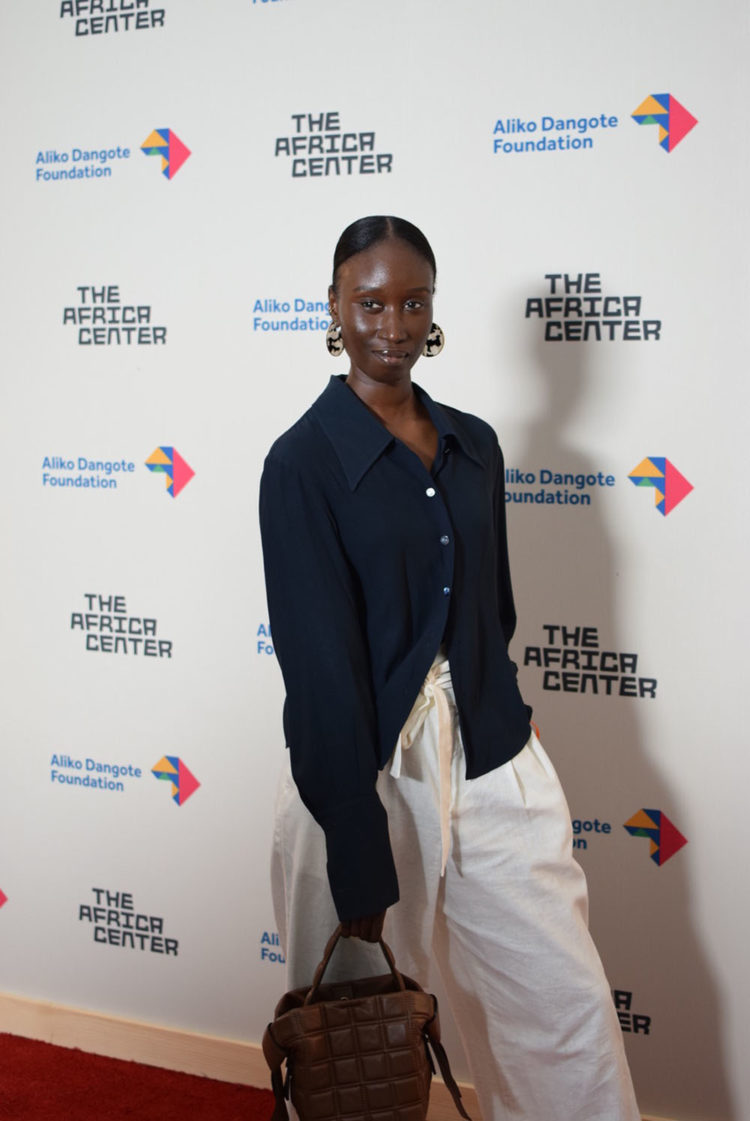As I maneuvered through a mob of local and international press and focused my lens to snap a photograph of Aliko Dangote, Africa’s most famous entrepreneur, reportedly worth an approximately $9 billion, a stern and frantic looking woman attempted to corral myself and the other camera persons, barking at no one in particular, “Cameras Down! Cameras Down!”
I captured a few shots and then returned to my post along the front corridor, steps from the stage and looked around at the beautiful crowd. I heard some commotion and saw the model Naomi Campbell arrive in an elegant cream-colored blazer, greet guests and take her seat near actor Boris Kodjoe. As the distinguished guests filed inside, each arrival dressed more elaborately than the last, I regretted not dusting off my finest trad outfit for the occasion. The Africa Center in Harlem, New York was buzzing one Monday afternoon during the United Nations General Assembly with the electric energy, glitz and glamor of a red carpet event, the attendees an eclectic mix of businessmen and women, African political leaders and heads of state, artists, celebrities, entrepreneurs and philanthropists.
The occasion? Nigerian billionaire Alike Dangote, through his nonprofit charity the Dangote Foundation had just gifted the Africa Center $20 million to support the development of the Center into a global cultural hub for art presentations, cultural experiences, business and policy discussions. Along with other donors including the Bill and Melinda Gates Foundation, who gifted $5 million, the Africa Center announced that it had raised a total of $42 million towards its capital campaign.
The Africa Center, originally founded in 1984 as the Museum for African Art, has come a long way, having struggled in the past to raise money to support an elaborate architectural vision and expanded mission, as reported by Artnet and the New York Times back in February of 2017. As Hadeel Ibrahim, daughter of Sudanese billionaire Mo Ibrahim and co-chair of the Center’s Board of Trustees explained during her opening remarks, “there were times when no one would take a meeting with me”. But now, with the support of friends in high places—in addition to Hadeel Ibrahim, leadership at the Africa Center includes Chelsea Clinton, co-Chair of the Board, and Halima Dangote, daughter of Aliko Dangote and President of the Board—the Africa Center is poised for a new chapter and a new narrative.
After an extended meet-and-greet cocktail, the guests were ushered into a hall with raw, concrete exposures dressed with drapes for the event – the beginning foundations of a massive building project. Uzo Iweala, award-winning writer and filmmaker and Chief Executive Officer of the Center took the stage and addressed the audience, explaining the ambitious vision for the Africa Center as a home for Africa in New York City. Since opening their doors for public programming in January of 2019 anchored by Chef Pierre Thiam’s Teranga, a popular Senegalese fast-casual eatery, the Center has attracted over 10,000 visitors and hosted 40 cultural events, leveraging partnerships with artists such as with vocalist and writer Somi Kakoma and her Salon Africana music series.
Following opening remarks from Hadeel and Halima (it was noted that Chelsea couldn’t attend because she is on maternity leave), each of Aliko Dangote, Mo Ibrahim and Bill Gates took the stage for a frank policy discussion and fireside chat focused on African development titled, the “Future Africa Forum”. Notably absent from the conversation and stage was any female representative or perspective, but Ibrahim was a humorous and insightful moderator keeping the conversation flowing as difficult topics such as education, family planning and population control, unemployment and corruption were addressed. Gates appeared to provide some checks and balances on the stage, grounding the discussions with some perspective that moved the conversation forward.
Ibrahim opened the conversation asking whether Africa’s exploding population growth was a blessing or a curse and Dangote responded with a keen insight –Africa boasts 60% of the world’s arable land and therefore focusing on agriculture and manufacturing, is critical. Gates added some nuance, affirming that Africa today is a net importer of food which is shocking given the availability of land and people, but also stating that, agriculture doesn’t create very many jobs. The educational sector has to improve – there must be a focus on human capital.
“If you get widespread education, you can do agriculture and health in a new way. You can leapfrog [development] as in the case of wireless and digital payments,” Gates stated. Ibrahim and Dangote then responded that with education, it’s also about quality. Ibrahim stated that schools need to sit down with business people and figure out, what are the jobs – what are the needs. In many African countries, you have the paradox that the higher educated someone is, the less chance they have of getting a job. And Dangote suggested opening technical schools to produce graduates with more employable skills (as opposed to a liberal arts educational curriculum focused on subjects like humanities and philosophy).
Perhaps the funniest moment in the discussion was during the Q&A portion, when the conversation turned to the differences between the culture of philanthropy in Africa and in America, and Dangote declared that he had not taken the Giving Pledge that Gates and other billionaires have taken because due to his Islamic faith he is not permitted to give away more than 1/3 of his wealth. Ibrahim (also Muslim) refuted the claim and then turned to the audience for validation, whereby Muhammadu Sanusi II, the 14th Emir of Kano who was seating in the front row, explained that under Islamic law, a Muslim can give away 100% of their fortune during their lifetime, but after death, a will cannot designate more than one third of one’s fortune to people outside of one’s family. In response to this clarification, Ibrahim quipped that perhaps Dangote should change his mosque and the audience erupted in laughter.
If rich and nuanced policy discussions such as this are what’s on the horizon for the Africa Center, then we can’t wait for the full realization of this exciting new project. And with friends like Aliko Dangote, Mo Ibrahim, Chelsea Clinton and Bill Gates, we’re certain the Center will be able to pull together the remaining funds needed to complete construction of a state of the art facility.

